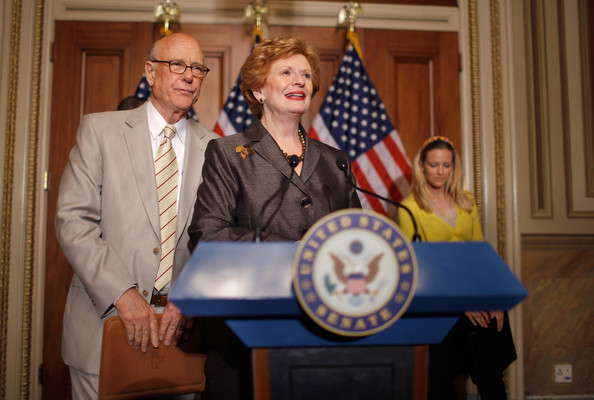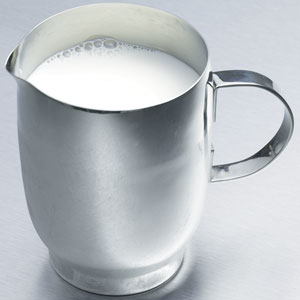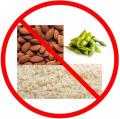CERCLA and EPCRA Regulations Intended for Hazardous, Not Animal, Waste
WASHINGTON, DC – Congress needs to make clear that regulations designed to protect the environment against toxic waste do not ensnare dairy farmers and others who raise farm animals, the House Subcommittee on Environment and the Economy was told Wednesday.
The hearing Wednesday on Capitol Hill reviewed legislation introduced by Rep. Billy Long (R-MO), designated as H.R. 2997, or the Superfund Commonsense Act. It would clarify that manure is not included in the meaning of “hazardous substance” as defined by the Comprehensive Environmental Response, Compensation, and Liability Act (CERCLA) regulations, and also would eliminate the reporting requirement for releases associated with manure under the Emergency Planning & Community Right to Know Act (EPCRA) regulation.
The National Milk Producers Federation has been working for several years with Congressman Long and others to provide greater regulatory assurances to dairy farmers that these laws and regulations are not designed or intended to impact dairy farmers. The CERCLA law was created more than 30 years ago to regulate Superfund sites, and the EPCRA law was created after that for similar purposes.
Testifying on behalf of the dairy industry, Walter Bradley, who works for Dairy Farmers of America, reminded committee members that concentrated animal feeding operations (CAFOs) and their environmental releases are subject to both state and federal laws. Bradley told the panel that “we are not seeking an exemption from the federal Clean Water Act (CWA) or the Clean Air Act (CAA) or similar state laws including any federal or state worker protection laws. We are merely seeking clarification under CERCLA and EPCRA that animal manure does not necessitate an emergency response nor does it create a Superfund site.”
Without the clarity provided in Rep. Long’s legislation, Bradley told the House panel that “the courts are left to redefine the regulation. Animal manure has been safely used as a fertilizer and soil amendment all over the world for centuries.”
“In recent years, however, we have seen litigation challenge the use of animal manure as a fertilizer by claiming contamination and damage to natural resources. The issue of CERCLA/EPCRA’s applicability to the livestock industry has been discussed in Congress several times in the last decade. I believe congressional intent is clear. When the law was passed, Congress did not intend for manure to be regulated as a hazardous substance,” Bradley said.
The National Milk Producers Federation (NMPF), based in Arlington, VA, develops and carries out policies that advance the well being of dairy producers and the cooperatives they own. The members of NMPF’s 30 cooperatives produce the majority of the U.S. milk supply, making NMPF the voice of more than 32,000 dairy producers on Capitol Hill and with government agencies.
CERCLA and EPCRA Regulations Intended for Hazardous, Not Animal, Waste
WASHINGTON, DC – Congress needs to make clear that regulations designed to protect the environment against toxic waste do not ensnare dairy farmers and others who raise farm animals, the House Subcommittee on Environment and the Economy was told Wednesday.
The hearing Wednesday on Capitol Hill reviewed legislation introduced by Rep. Billy Long (R-MO), designated as H.R. 2997, or the Superfund Commonsense Act. It would clarify that manure is not included in the meaning of “hazardous substance” as defined by the Comprehensive Environmental Response, Compensation, and Liability Act (CERCLA) regulations, and also would eliminate the reporting requirement for releases associated with manure under the Emergency Planning & Community Right to Know Act (EPCRA) regulation.
The National Milk Producers Federation has been working for several years with Congressman Long and others to provide greater regulatory assurances to dairy farmers that these laws and regulations are not designed or intended to impact dairy farmers. The CERCLA law was created more than 30 years ago to regulate Superfund sites, and the EPCRA law was created after that for similar purposes.
Testifying on behalf of the dairy industry, Walter Bradley, who works for Dairy Farmers of America, reminded committee members that concentrated animal feeding operations (CAFOs) and their environmental releases are subject to both state and federal laws. Bradley told the panel that “we are not seeking an exemption from the federal Clean Water Act (CWA) or the Clean Air Act (CAA) or similar state laws including any federal or state worker protection laws. We are merely seeking clarification under CERCLA and EPCRA that animal manure does not necessitate an emergency response nor does it create a Superfund site.”
Without the clarity provided in Rep. Long’s legislation, Bradley told the House panel that “the courts are left to redefine the regulation. Animal manure has been safely used as a fertilizer and soil amendment all over the world for centuries.”
“In recent years, however, we have seen litigation challenge the use of animal manure as a fertilizer by claiming contamination and damage to natural resources. The issue of CERCLA/EPCRA’s applicability to the livestock industry has been discussed in Congress several times in the last decade. I believe congressional intent is clear. When the law was passed, Congress did not intend for manure to be regulated as a hazardous substance,” Bradley said.
The National Milk Producers Federation (NMPF), based in Arlington, VA, develops and carries out policies that advance the well being of dairy producers and the cooperatives they own. The members of NMPF’s 30 cooperatives produce the majority of the U.S. milk supply, making NMPF the voice of more than 32,000 dairy producers on Capitol Hill and with government agencies.


 The National Milk Producers Federation (NMPF) and the U.S. Dairy Export Council (USDEC) applauded this week’s introduction of legislation to extend Permanent Normal Trade Relations (PNTR) to Russia. Senator Baucus (MT), Finance Committee Chairman; Senator John Thune (SD), International Trade Subcommittee Ranking Member; Senator John Kerry (MA), Foreign Relations Committee Chairman; and Senator John McCain (AZ), Armed Services Committee Ranking Member, introduced the bipartisan legislation in order to enable U.S. companies to expand exports to Russia when it joins the World Trade Organization (WTO) this year.
The National Milk Producers Federation (NMPF) and the U.S. Dairy Export Council (USDEC) applauded this week’s introduction of legislation to extend Permanent Normal Trade Relations (PNTR) to Russia. Senator Baucus (MT), Finance Committee Chairman; Senator John Thune (SD), International Trade Subcommittee Ranking Member; Senator John Kerry (MA), Foreign Relations Committee Chairman; and Senator John McCain (AZ), Armed Services Committee Ranking Member, introduced the bipartisan legislation in order to enable U.S. companies to expand exports to Russia when it joins the World Trade Organization (WTO) this year. WASHINGTON, DC – The two organizations representing America’s dairy farmers and dairy foods companies jointly announced their opposition today to a proposal in the Senate that would allow the interstate sales of raw milk.
WASHINGTON, DC – The two organizations representing America’s dairy farmers and dairy foods companies jointly announced their opposition today to a proposal in the Senate that would allow the interstate sales of raw milk.





